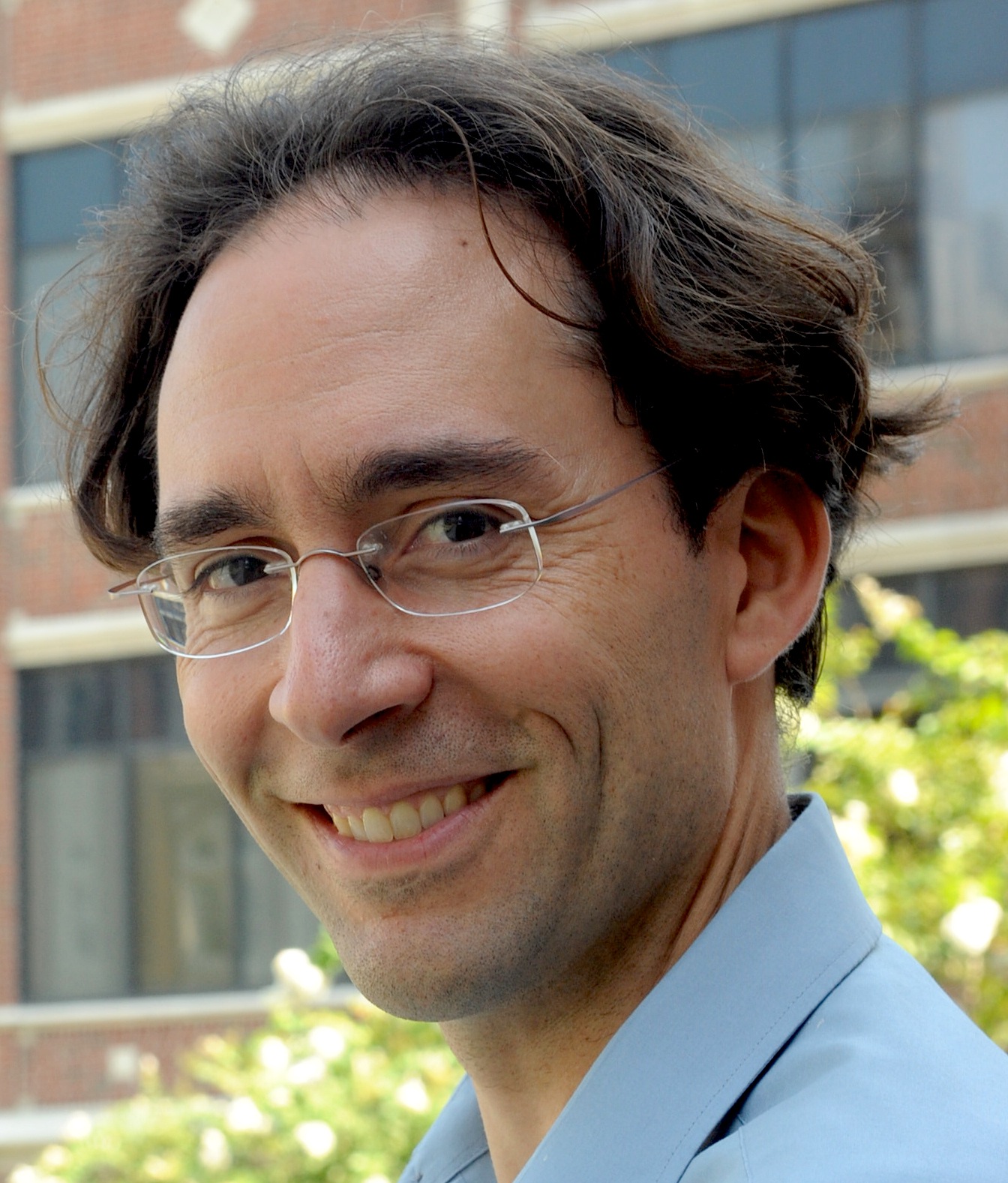Mark Yakich's first collection, Unrelated Individuals Forming a Group Waiting to Cross (Penguin, 2004), was a winner of the National Poetry Series. His most recent collection is The Importance of Peeling Potatoes in Ukraine (Penguin, 2008). Yakich teaches at Loyola University and is editor of New Orleans Review. Poets & Writers has supported readings he’s given in both New Orleans and New York State. What are your reading dos?
What are your reading dos?
I try to prepare for a reading by having one drink beforehand. One drink loosens me up, but two makes me undress people visually in the crowd, especially small crowds where there may be only four or five pairs of eyes.
What’s the strangest comment you’ve received from an audience member?
One audience member asked after I read my poem “The Invisible Man’s Daughter”: “Who’s the invisible man’s daughter?” I didn’t really understand the question until I realized there are a lot of audience members who would like to know of such and such a poem: What’s the actual “story” behind it? This was so much the case with my first book, in which there are numerous fairy-tale-type characters, that I wrote a second book, The Making of Collateral Beauty, in order to explain the “reality” behind the poems in my first book, which I made up entirely.
What’s your crowd-pleaser, and why does it work?
From my first book, the poem “On Raisins” is the crowd-pleaser. I think almost everyone has a love-hate relationship with them. I’ll eat raisins, especially the golden ones, in a handful, but I don’t like it when raisins try to become grapes again—as when I add milk to, say, Raisin Bran and the raisins rehydrate. I just don’t believe in transubstantiation, reincarnation, or whatever it is raisins are trying to do there.
In my latest collection, the crowd-pleaser is a poem called “A Brief History of Patriotism,” which traces the history of the potato throughout a wide range of cultures, countries, and ethnicities. The problem with the poem is that people find it funny. It’s a deadly serious poem, but I don’t have the energy any more to write a book explaining that.
Ultimately, the key to pleasing an audience is to entertain, and that doesn’t necessarily mean that they have to “get” the poem. Does anybody get the meaning when they hear Gertrude Stein’s work aloud? I would argue that foremost you get entertained sonically and comically when you hear Stein; conventional meaning is not her game.
What’s the most memorable thing that’s happened at an event you’ve been part of?
The first time my nine-part poem “Green Zone New Orleans” was read aloud I was floored. I enlisted eight volunteers from the audience. Each reader, plus myself, read the sections of the poem consecutively. As soon as the last person read the last section, we all began reading our individual sections at the same time. The cacophony of voices lasted for about a minute until one by one the voices dropped out… down to three voices, then a duet, and a single voice. Audience members shocked me with their wet eyes. I was a bit choked up myself. The voices all together and then falling away reminded me of the sound of the tin cans falling away from the bumper of the car my bride-wife and I drove home from the courthouse in which we were married. We listened to those tin cans—which I’d saved over a few weeks and then tied with twine to the car in the parking lot after the ceremony—relishing their tinkle and bang against one another and the road, the violent sounds turning sweeter as each can fell to its doom.
Since that first reading, I’ve enlisted audience volunteers to read “GZNO” many times. In New Orleans, P&W sponsored my first reading from “GZNO” at Antenna, a gallery that’s part of a literary co-op and small publisher called Press Street, which also published a special chapbook of the poem.
What do you consider to be the value of literary programs for your community?
Literary readings are not revolutionary get-togethers, or get-togethers of revolutionaries. Literary readings seem, to me, more like mini-conventions of loners who feel they should get out at least once a month. Indeed, these functions always feel paradoxical to me. A text or a book is usually made by an individual alone in a room, and are mostly read alone in a room. Literary readings are public performances: lovely spots of time in which writers and poets get to connect with their, mostly, invisible readers. And in New Orleans, readings are not just readings—they are always social and increasingly they hook into neighborhood events: charter school bazaars, co-op openings, gallery walks, playground constructions, and political protests.
Before the storm there weren’t as many literary events as at present. Or maybe that’s untrue. But what I know is that the literary events now feel more communal.
Photo: Mark Yakich. Credit: Harold Baquet.
Support for Readings/Workshops events in New Orleans is provided by an endowment established with generous contributions from the Poets & Writers Board of Directors and others. For Readings/Workshops in New York support is provided, in part, by public funds from the New York State Council on the Arts and the New York City Department of Cultural Affairs, with additional support from the Louis & Anne Abrons Foundation, the Axe-Houghton Foundation, The Cowles Charitable Trust, and the Abbey K. Starr Charitable Trust. Additional support comes from the Friends of Poets & Writers.






